Kauai Physical Therapy Blog
Home of Action Physical Therapy: Kauai's Premier Physical Therapy and Personal Fitness Clinic
Industry News
Soreness from Your Workout Doesn’t Mean You’re Getting Stronger.
Muscle soreness caused from working out doesn’t make you stronger. Soreness just makes you hurt. Lifting heavier weights makes you stronger, because that is what stronger means–the ability to produce more force.
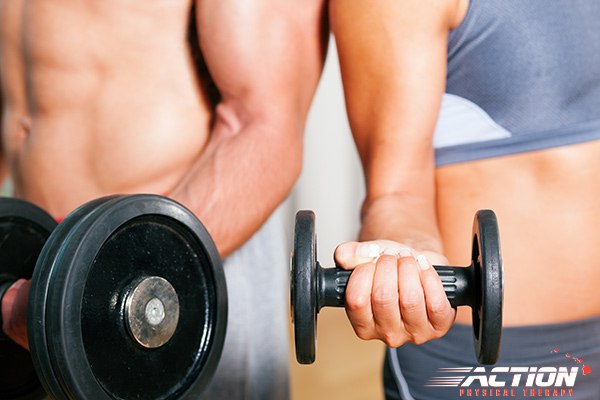
In the article, “Why Being Sore Doesn’t Mean You’re Getting Stronger,” posted on PJMedia.com, we learn that soreness doesn’t mean progress. There are three modes of muscle contraction: Concentric, Eccentric, and Isometric, but it is only eccentric muscular contractions that will create muscular soreness. This article breaks down the three types of muscular contractions and explains what is happening to your muscles to make you feel sore. This soreness is a normal part of training, but chronic systemic inflammation is a very bad thing for your health.
Click here to read this interesting article on PJMedia.com
PJMedia is a blog that sheds light on issues important to Americans through insightful reporting, commentary and analysis.
Chronic Neck Pain
A recent study reveals that an effective exercise regimen and its components regarding frequency, intensity, time and type (FITT) will improve Chronic Neck Pain.
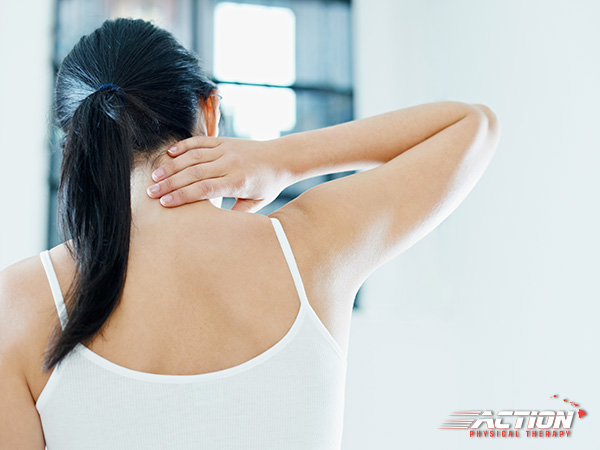
Chronic Neck Pain (CNP) is treated by many therapists with exercise therapy, but what delivers the best results? According to a recent study published by Elsevier Inc. / American Congress of Rehabilitation Medicine, the objective was to identify the most effective components in an active exercise physiotherapy treatment intervention for CNP based on the frequency, intensity, time, and type (FITT) exercise method.
The study revealed that education and exercise training has the most beneficial effect on reducing pain and improving function and quality of life in patients with CNP. It was also noted that targeting deep neck flexors through strength training has positive effects on quality of life when combined with endurance and aerobic training. Progress was seen in patients that performed 30-60 minutes exercise sessions at least three times per week for 6-12 weeks.
Click here to view the article posted on www.anatomy-physiotherapy.com’s web site.
Get a Massage. It’s Good For You!
There are lots of benefits of massage therapy. It can help pain management for cancer, insomnia, anxiety, multiple sclerosis, post-operative recovery and will help heal the heart.
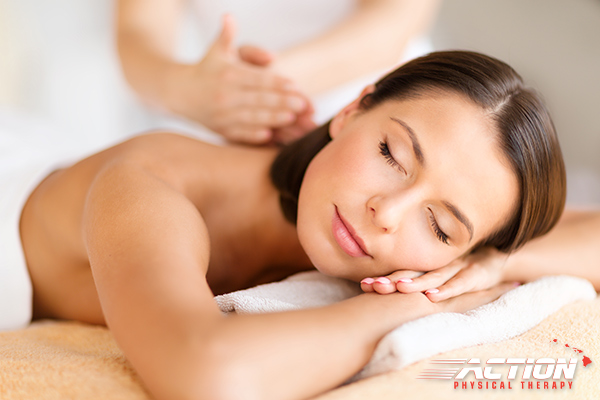
Many Americans suffer from high blood pressure and massage therapy can help you maintain optimal vascular health.
Long-term studies have shown that a consistent massage program can decrease diastolic and systolic blood pressure; decrease salivary and urinary cortisol stress-hormone levels; and lower sources for depression, anxiety and hostility.
If you or someone you know is looking for natural ways to help lower blood pressure, please contact our office today to set up an appointment with Cece our Certified Massage & Zen Muscular Therapist. (808) 246-0144
Click here to read Why Massages Really Do Keep You Healthy: A Cardiologist Explains
Paleo Diet & White Rice
So you thought white rice was bad for you. Plus you are on the Paleo diet, so you’ve been avoiding this Hawaiian pantry staple. Well think again. According to the Paleo Leap’s new article All About Rice it may not be as bad as you think.
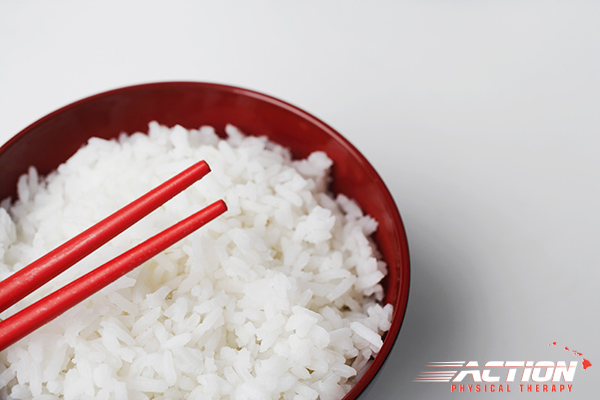
This interesting and informative article breaks down the basics of carbs and Paleo diet and examines the differences between brown and white rice. It isn’t saying whether adding white rice to your diet is what you should do, but rather lays down the facts to see if it is right for you.
Click here to read All About Rice on Paleo Leap’s website and to learn more about the Paleo Diet.
Arthritis is a ‘Significant’ Factor in Falling Injuries
Adults with arthritis are injured in falls at a rate 2.5 times higher than for those without the disease, according to a new report from the US Centers for Disease Control and Prevention (CDC).
The findings, published in the CDC’s May 2 Morbidity and Mortality Weekly Report, showed that in almost all cases, rates of falls and falls injuries were “significantly higher” among adults 45 years and older with arthritis than those without.
To read more about this topic, please click this link.
Is Your Produce Clean or Pesticide-Laden?
Every fruit and vegetable you buy comes with a dose of poisonous chemicals, unless you are eating organic. But not all produce suffers from the same level of toxicity.
Thankfully the Environmental Working Group just released its annual list of the 15 cleanest and the 12 most pesticide-laden fruit and vegetables to help you decide what to put in your body.
The Dirty Dozen
The Environmental Working Group found these 12 pieces of produce to be most toxic:
1. Apples
2. Strawberries
3. Grapes
4. Celery
5. Peaches
6. Spinach
7. Sweet Bell Peppers
8. Nectarins – Imported
9. Cucumbers
10. Cherry Tomatoes
11. Snap Peas – Imported
12. Potatoes
The Clean Fifteen
The EWG found that the produce listed below are the least likely to hold pesticides residues, and have tested low for total pesticide concentration:
1. Avocados
2. Sweet corn
3. Pineapples
4. Cabbage
5. Frozen sweet peas
6. Onions
7. Asparagus
8. Mangoes
9. Papayas
10. Kiwis
11. Eggplant
12. Grapefruit
13. Cantaloupe
14. Cauliflower
15. Sweet potatoes
Click Here to Read the Full Article on Natural Society’s Web Site.
Want Younger Looking Skin?
We all know how important it is to exercise regularly, but new research has revealed that exercise will keep skin looking and feeling younger & it can also reverse skin aging. It’s not too late to start.
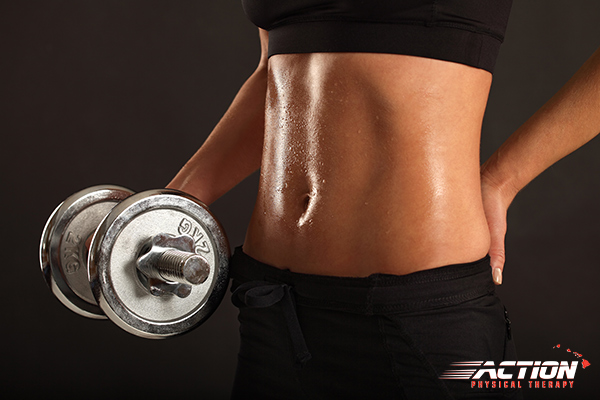
As we age, our skin begins to thin and starts to give a more saggier and translucent appearance. We can’t stop this change from happening, but you can make your skin look younger by working out twice a week.
Check out this interesting article featured in the New York Times that discusses this surprising new research.
Click here to read the New York Time’s article Younger Skin Through Exercise.
Shoulder Impingement
Motor control retraining exercises for shoulder impingement: effects on function, muscle activation and biomechanics in young adults.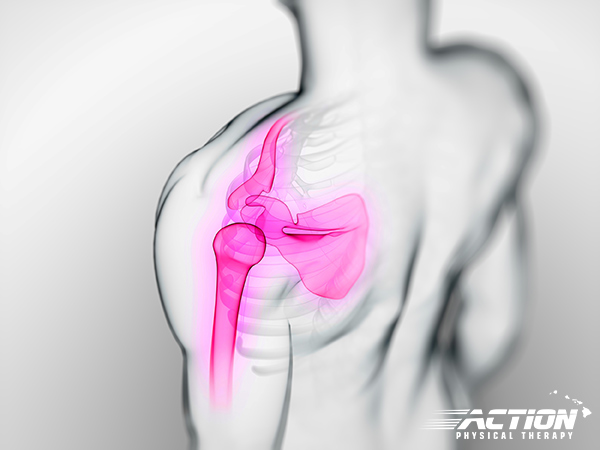
There is limited evidence motor control and strengthening exercises are effective in patients with subacromial impingement syndrome (SIS). The purpose of this study was to investigate the effectiveness of scapular motor control retraining exercises on pain and function outcomes as well as kinematic and neurophysiological parameters.
16 young adults with SIS and 16 healthy age and sex matched individuals were included. Subjects completed several patient reported outcome measures and a testing procedure consisting of arm elevation to 90 degrees in the sagittal, frontal and scapular plane while data was collected using surface electromyography and using a 3D motion analysis system.
After a 10 week motor control intervention including exercises for learning optimal scapular coordination and selective strengthening of the scapular muscles, and manual therapy techniques commonly used in clinical practice, immediate improvements in pain and function were present. Moreover, muscle recruitment patterns were altered significantly, leading to more adequate scapular kinematics. > From: Worsley et al., J Shoulder Elbow Surg 22 (2013) e11-e19. Published in Europe PMC.
- Visit the Pubmed summary for more information or click here for the free full text version.
- Reposted from www.anatomy-physiotherapy.com
Direct Access in Hawaii—What that Means for You
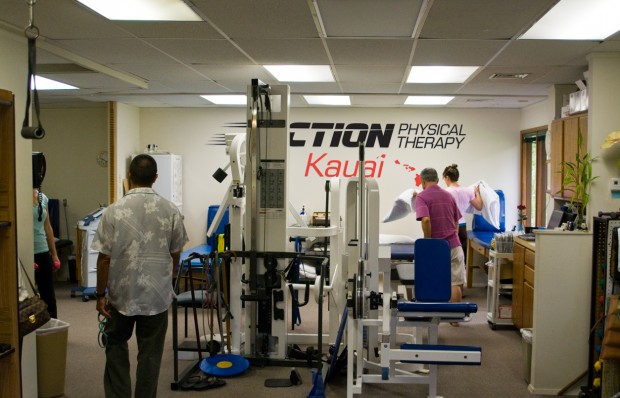 Direct Access to Physical Therapist is now available.
Direct Access to Physical Therapist is now available.
According to Ann Frost, PT, president of the Hawaii Chapter of APTA, “Hawaii’s people can now enjoy the ability to receive physical therapy in a more cost- and time-effective manner.” Specifically, patients can now receive treatment from a licensed physical therapist without a physician’s referral.
So what does that mean for you? Instead of visiting your chiropractor for weekly maintenance, or your acupuncturist to ease your pain briefly, you can now go directly to a physical therapist to fix what ails you.
A licensed physical therapist is a true health care professional with at least a four-year degree who has passed a demanding physical therapy exam. A physical therapist specializes in the evaluation and treatment of various diagnoses that limit physical functioning. Our physical therapist work with you to restore health and foster optimal physical function. They don’t address the symptom, they define the root issue and provide remedies and long term solutions.
At Action Physical Therapy Kauai, this means we begin each client relationship with a thorough examination to identify potential and existing problems. Before we create your personal program, we will discuss your history in detail and use established tests and measures to forecast how successful we can be in addressing your issue.
To read more go to American Physical Therapy Association’s article on direct access on the APTA web site.




